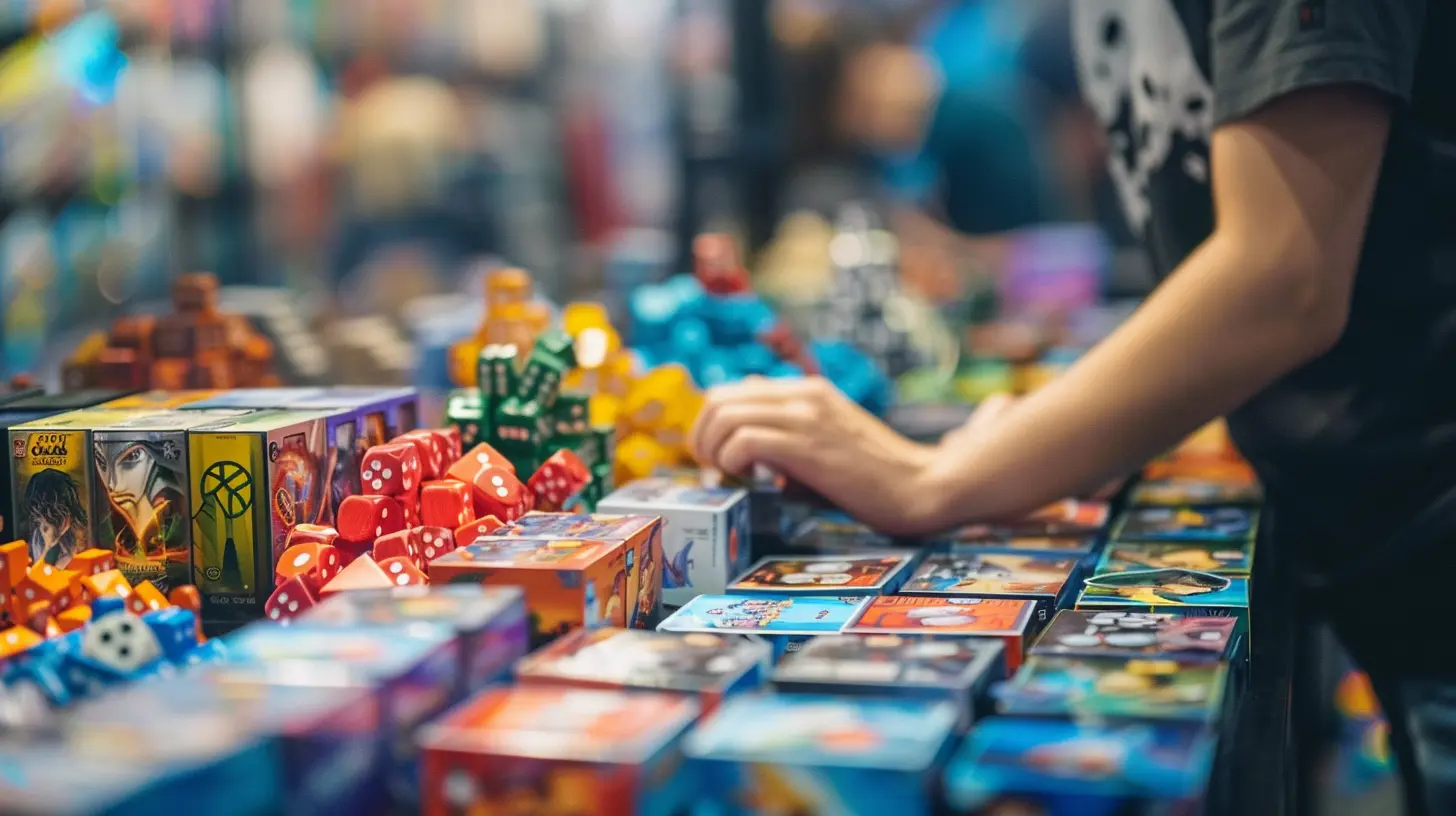2 April 2025
Free-to-play games are a magnificent paradox, aren’t they? On one hand, they don’t burn a hole in your wallet, and on the other, they can rob you blind of your most precious currency—time. Whether it's the daily login streaks, grinding for limited-time rewards, or battling through endless levels, these games can easily take over your schedule if you’re not careful. But don’t worry, I’ve got your back. Let’s talk about some practical tips to enjoy these games without letting them chew up your entire day.
Why Time Management in Free-to-Play Games Is Tricky
First, let’s break down why this is such a common problem. Free-to-play games, by design, are addictive. They’re engineered to grab your attention and keep you coming back with features like:- Daily Tasks or Quests: These lure you in with rewards for logging in every day.
- Energy Systems: You play a little, run out of energy, and then either wait or pay up.
- Limited-Time Events: You feel a sense of urgency to grind for rare items or characters.
- Social Pressure: Got friends playing the same game? Yeah, you don’t want to fall behind, right?
With all these elements working together, it’s easy to feel overwhelmed before you even realize it. The good news? You can fight back with some simple strategies—and no, deleting the game isn’t your only option.
1. Set Boundaries for Your Gameplay
The first and most important tip: set clear boundaries. These games are designed to keep you playing “just one more round.” Before you know it, you’ve spent hours chasing some shiny new collectible. Sounds familiar?- Time Limit Rules: Decide how much time you’re willing to spend on the game daily. For example, 30 minutes in the morning or an hour before bed.
- Use Alarms: Set a timer to remind yourself to stop playing. Trust me, the “just five more minutes” trap is real.
- No Midnight Sessions: Gaming late at night messes with your sleep schedule, and honestly, nothing productive happens after midnight anyway.
Treat the game like dessert—enjoy it, but don’t overindulge.
2. Prioritize Like a Pro
One of the biggest traps in free-to-play games is trying to do everything. You’ve got daily tasks, weekly challenges, events, and those random mini-games that pop up out of nowhere. It’s exhausting! Instead, prioritize your in-game activities.- Focus on Goals That Matter: Ask yourself, “What do I really want from this game?” If it’s collecting a specific character or gear, focus on tasks that get you closer to that.
- Skip the FOMO: Limited-time events are great, but don’t let them guilt-trip you into spending hours grinding. Remember, you’re playing for fun—not stress.
- Know When to Pass: Some tasks just don’t give good returns on your time. If an event requires hours of grinding for a mediocre reward, it’s okay to skip it.
Think of this like cleaning a messy room—you can’t organize everything at once, so focus on what’s most important first.
3. Take Advantage of Idle Time
You don’t always have to be actively playing the game to make progress. Many free-to-play games have idle or background mechanics that let you continue progressing while you’re away. Use them to your advantage.- Idle Rewards: Some games provide bonuses when you log back in after being offline for a while. Let the game do the work while you take a break.
- Queue Up Tasks: If you’re playing a game with crafting or base-building, start long-time tasks before you log out.
- Play Passively: If you’re multitasking, like watching TV or listening to a podcast, those mindless grinding sessions won’t feel so tedious.
Think of it like slow-cooking a meal—it’s still working while you do other things.
4. Resist the Pay-to-Win Trap
Let’s be real—free-to-play games often push you toward spending money to speed up progress or get rare items. While this might save you time, it can also lead to buyer’s remorse. The better approach? Stick to your budget and focus on free, sustainable options.- Use Freemium Features Wisely: Games often give free premium currency through daily rewards or special achievements. Save these for high-value purchases.
- Don’t Fall for Microtransactions: Spending “just $5” here and there adds up. If it starts becoming a habit, it’s time to reevaluate.
- Ask Yourself: Do You Really Need It?: That flashy costume or weapon might look cool now, but will you even care about it in a week?
It’s like buying candy at the grocery checkout—tempting, but not always worth it.
5. Treat It Like a Hobby, Not a Job
The whole point of playing games is to relax and have fun. When it starts feeling like a chore, it’s time to step back and rethink things. Treat the game as something you choose to do, not something you have to do.- Skip a Day Without Guilt: It won’t be the end of the world if you miss a daily login. Seriously, the game isn’t going to send you a breakup text.
- Have Backup Hobbies: Balance is key. Spend time on other hobbies like reading, exercising, or watching your favorite shows.
- Take Breaks from Long Grinds: When a game gets super repetitive, step away for a bit. It’ll still be there when you come back.
Think of it like working out—doing it every day is great, but rest days are equally important.
6. Be Social, But Set Limits
Many free-to-play games are multiplayer-driven, encouraging you to team up with friends or join guilds. While social gaming can be a blast, it can also lead to extra pressure.- Communicate with Your Team: If your guild is demanding hours of your time, let them know your limits. Real-life commitments always come first.
- Don’t Compare Yourself: Someone else’s epic gear or higher level might make you feel behind, but remember—they might be pouring way more time (or money) into the game than you.
- Avoid Toxic Communities: If the social aspect of the game becomes stressful or negative, it’s okay to leave and find a more chill group.
Treat online gaming friends like real-life ones—any relationship that’s draining isn’t worth keeping.
7. Evaluate Your Long-Term Commitment
At some point, you might need to ask yourself: is this game still worth my time? It’s easy to get stuck in a loop, playing out of habit instead of enjoyment.- Check Your Enjoyment Levels: If the game feels more frustrating than fun, it might be time to drop it.
- Try New Games: Sometimes switching to a new game can reignite your excitement. You don’t have to stick with the same one forever.
- Remember, It’s Just a Game: Your happiness and mental well-being should always come first.
Think of it like a Netflix series—if you’re not hooked anymore, why not move on to something better?
Conclusion
Managing your time in free-to-play games without getting overwhelmed is all about balance. By setting boundaries, prioritizing goals, embracing idle mechanics, and treating it like a hobby instead of a chore, you can enjoy these games without letting them take over your life. Remember, it’s your time—spend it wisely, and don’t let a digital world control your real one.And hey, the next time you log in, do it because you want to, not because you have to. Cool?


